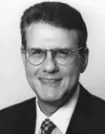On October 17, 2011, FINRA Rule 1230(b)(6) (the "Rule") becomes effective, establishing Operations Professional registration for FINRA member firms.1 Under this new registration requirement, any person currently (i) exercising specifically defined supervisory or management responsibilities with respect to (ii) an enumerated list of back- and middle-office functions will be required to register as an Operations Professional, and will be subject to continuing education requirements. Also, unless the prospective Operations Professional is already registered with the FINRA member firm in a specifically enumerated category, a licensing examination (the "Series 99 examination") must be successfully completed.
As a result of this new requirement, FINRA member firms must identify persons whose current activities subject them to the Operations Professional registration requirement (so-called "Day One Professionals") as of October 17, 2011. Any Day One Professional must register as an Operations Professional via Form U4 by December 16, 2011, and must, unless exempted, pass the Series 99 examination by October 17, 2012. With the effectiveness of the Rule, FINRA expands the reach of its registration regime into broker-dealer back-office functions, even if such operations are outsourced to affiliate or third parties.
I. WHO IS REQUIRED TO REGISTER?
1.1 An Operations Professional is a "covered person" who performs a "covered function"
The registration requirement applies to any person who, under FINRA Rule 1230(b)(6), is (1) a "covered person" and who (2) discharges a "covered function".
"Covered persons" are, generally speaking, persons exercising a supervisory or management responsibility.
The three types of covered persons are:2
- Senior management with direct responsibility over the "covered functions"
- Any person designated by senior management specified in (i) above as a supervisor, manager or other person responsible for approving or authorizing work, including work of other persons, in direct furtherance of each of the "covered functions", as applicable, provided that there is sufficient designation of such persons by senior management to address each of the applicable covered functions; and
- Persons with the authority or discretion materially to commit a member's capital in direct furtherance of the "covered functions" or to commit a member to any material contract or agreement (written or oral) in direct furtherance of the "covered functions".3
The sixteen enumerated covered functions are the following:4
- Client on-boarding (customer account data and document maintenance);
- Collection, maintenance, re-investment (i.e., sweeps) and disbursement of funds;
- Receipt and delivery of securities and funds, account transfers;
- Bank, custody, depository and firm account management and reconciliation;
- Settlement, fail control, buy ins, segregation, possession and control;
- Trade confirmation and account statements;
- Margin;
- Stock loan/securities lending;
- Prime brokerage (services to other broker-dealers and financial institutions);
- Approval of pricing models used for valuations;
- Financial control, including general ledger and treasury;
- Contributing to the process of preparing and filing financial regulatory reports;
- Defining and approving business requirements for sales and trading systems and any other systems related to the covered functions, and validation that these systems meet such business requirements;
- Defining and approving business security requirements and policies for information technology, including, but not limited to, systems and data, in connection with the covered functions;
- Defining and approving information entitlement policies in connection with the covered functions; and
- Posting entries to a member's books and records in connection with the covered functions to ensure integrity and compliance with the federal securities laws and regulations and FINRA rules.
1.2 Registration limited to those with supervisory roles
FINRA Rule 1230 does not require the registration of all personnel discharging a covered function; rather, it is limited to persons exercising the managerial and/or supervisory roles described in the three categories of covered persons. Persons who perform a covered function, but whose responsibilities are "below" the three specified levels, would not be required to register as Operations Professionals.
However, as noted in FINRA Rule 1230(b)(6)(A)(ii), FINRA expects that there would be at least one person designated as having a responsibility for approving work in direct furtherance of each covered function that forms part of the business of the applicable firm. FINRA Regulatory Notice 11-33 therefore states the expectation of FINRA that each member firm will have at least one registered Operations Professional.
1.3 Registration requirement applicable to outsourced functions, including outsourcing both to affiliate and non-affiliate service providers; registration not required for personnel conducting ancillary or ministerial functions.
Many broker-dealers outsource some portion of their middle- or back-office function. FINRA's Regulatory Notice 11-33 specifically notes that outsourcing a function will not relieve a member firm of the responsibility to register an Operations Professional in respect of that function.5 Rather, as with other categories of registration, a functional analysis is required in order to determine whether a third party service provider to the Firm (whether affiliated or unaffiliated) must register as an Operations Professional.
In this regard, FINRA gives certain guidance in respect of the determination of whether a third party service provider (affiliated or unaffiliated) will be viewed as an associated person of the member firm, and therefore potentially an Operations Professional of that firm. Specifically, associated person status is not determined based on the office or location from which the person performs functions on behalf of the firm; rather, a functional analysis of whether the person is involved in the securities and investment banking business of the member firm is required. Moreover, FINRA notes that a person's job title and/or employer entity may not be clearly indicative of his or her obligation to register as an Operations Professional, since the registration category is function-based and therefore not conditioned on an individual's employment (or independent contractor) relationship to the firm.
Many third party service providers, however, play an ancillary or support function. In this regard, Supplementary Material .06 to the Rule states that any person (including a third party service provider) who performs an ancillary role with respect to any covered function, or whose function is to serve a role that can be viewed as supportive of or advisory to the performance of a covered function (e.g., internal audit, legal or compliance personnel who review but do not have primary responsibility for any covered function), or who engages solely in clerical or ministerial activities in a covered function, will not be required to register as an Operations Professional.
1.4 Employees of foreign brokers executing transactions in foreign securities
Supplementary material .06 also provides that an employee of a non-U.S. broker-dealer who facilitates a transaction in non-U.S. securities on behalf of the customer of a FINRA member will not be required to register as an Operations Professional, provided that:
- the member sending the order for a transaction in foreign securities on behalf of the customer to the foreign broker-dealer is not a direct participant of the applicable foreign clearing system; and
- in executing such order in the foreign market, the foreign broker-dealer accepts the member's customer's instructions to settle the transaction in foreign securities on a DVP/RVP basis through the foreign clearing system and settles directly with a custodian for the customer.
II. FINRA GUIDANCE REGARDING SMALL FIRMS
FINRA Regulatory Notice 11-33 asserts that the impact of the new registration requirement will be minimal for small firms where the majority of covered functions are performed by a carrying and clearing firm pursuant to a clearing arrangement. The notice states that it may be possible for a small firm to rely on limited persons, perhaps the Financial Operations Principal, to liaise with the carrying and clearing firm regarding those covered functions.
FINRA does not expect personnel of the carrying and clearing firm to be dual-registered with the introducing firm.
III. USING AN ELIGIBLE REGISTRATION TO OPT INTO OPERATIONS PROFESSIONAL REGISTRATION WITHOUT COMPLETION OF THE SERIES 99 EXAMINATION
Pursuant to FINRA Rule 1230(b)(6)(D), persons who currently hold or have held within the past two years certain representative and principal-level registrations will be permitted to elect registration as an Operations Professional without taking the Series 99 examination. These examinations (each an "Eligible Qualifying Examination") are:
- Registered Options Principal (Series 4);
- General Securities Sales Supervisor (Series 9 and 10);
- General Securities Representative (Series 7);
- Compliance Officer (Series 14);
- Supervisory Analyst (Series 16);
- UK Securities Representative (Series 17);
- General Securities Principal (Series 24);
- Investment Company Products/Variable Contracts Limited Principal (Series 26); Financial and Operations Principal (Series 27 or Series 28);
- Canada Securities Representative (Series 37 or 38);
- Municipal Fund Securities Principal (Series 51); and
- Municipal Securities Principal (Series 53)
There will not be an automatic waive-in for persons holding the above examinations; rather, they must opt-in via submission of Form U4 requesting registration. In permitting persons with eligible registrations to opt into the Operations Professional registration, FINRA states that it believes that the eligible registrations serve as a "valid proxy" for the Operations Professional examination requirement.
IV. TIMING OF REGISTRATION REQUIREMENT
As noted above in the introduction, persons who on October 17, 2011 are subject to the registration requirement (i.e., a person who, at that time, is a covered person performing a covered function) (as noted above, a "Day One Professional") will be required to register as an Operations Professional via Form U4 submitted to CRD by December 16, 2011 (with the period between the Rule's effective date and December 16, 2011 referred to as the "60-day identification period"). Day One Professionals who are not eligible for the opt-in procedure must pass the Series 99 examination by October 17, 2012.
The 60-day identification period and opt-in procedures will not be available to persons who become subject to the Operations Professional registration requirement, that is, covered persons who discharge covered functions, after October 17, 2011. Accordingly, they must pass register as an Operations Professional via Form U4 prior to performing such activities. Such persons will have a period of 120 days beginning on the date of their registration as an Operations Professional to pass the Series 99 or an Eligible Qualifying Examination, during which time such person may function as an Operations Professional.
V. THE SERIES 99 EXAMINATION AND CONTINUING EDUCATION REQUIREMENTS
Operations Professionals will also be subject to both firm element and regulatory element continuing education requirements. The Series 99 examination is described in FINRA Regulatory Notice 11-42.6 A content outline of the examination has been released.7
VI. CONCLUSION
Firms should examine their middle- and back-office functions to determine which personnel may be required to register as Operations Professionals. Having conducted that review, firms must ensure that by December 16 such personnel register as Operations Professionals via Form U4. The expansion of FINRA's registration requirement into the back office functions, including with respect to functions carried out by affiliates or third parties, continues FINRA's emphasis on outsourced functions, reflected also in its proposed rule regarding third party service providers.8
Footnotes
1.FINRA proposed the Rule on May 26, 2010, with Regulatory Notice 10-25, available at http://www.finra.org/web/groups/industry/@ip/@reg/@notice/documents/notices/p121533.pdf . The SEC approved the rule change on June 16, 2011: http://www.sec.gov/rules/sro/finra/2011/34-64687.pdf . FINRA Regulatory Notices and SEC Releases are generally available on the FINRA and SEC websites, http://www.finra.org/ and http://www.sec.gov// , respectively.
2. FINRA Rule 1230(b)(6)(A).
3. Supplementary material .06 to FINRA Rule 1230 provides that the determination as to what constitutes materially or material is based on a member's pre-established spending guidelines and risk management policies. Generally, persons who do not have the authority or discretion to commit a member firm's capital, or to commit a member firm to a contract or agreement, above such pre-established guidelines and risk management policies are not subject to registration as an Operations Professional.
4. FINRA Rule 1230(b)(6)(B).
5 FINRA Regulatory Notice 11-33 is the FINRA release describing the Rule following SEC approval. It is currently available at: http://www.finra.org/web/groups/industry/@ip/@reg/@notice/documents/notices/p123960.pdf
6 The notice is available at http://www.finra.org/web/groups/industry/@ip/@reg/@notice/documents/notices/p124456.pdf .
7 The content outline is available at http://www.finra.org/web/groups/industry/@ip/@comp/@regis/documents/industry/p124124.pdf
8 This proposed rule is described in FINRA Regulatory Notice 11-14, available at http://www.finra.org/web/groups/industry/@ip/@reg/@notice/documents/notices/p123398.pdf
The content of this article is intended to provide a general guide to the subject matter. Specialist advice should be sought about your specific circumstances.




